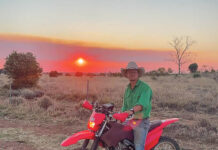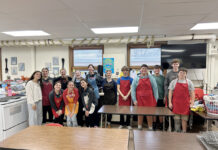WASHINGTON – A top U.S. trade official has reiterated that any World Trade Organization (WTO) agreement that opens markets only slightly would not get U.S. support.
At an Organization for Economic Cooperation and Development meeting in Paris May 24, Deputy U.S. Trade Representative Susan Schwab said the United States remains determined to conclude the long-stalled negotiations successfully in 2006.
“We can only achieve success if the negotiations produce significant, new market opportunities,” Schwab said, adding that the United States wants “real results, not just ‘cuts on paper.'”
Give and take. European Union trade commissioner Peter Mandelson had previously said his bloc would be willing to improve slightly its offer to cut agricultural tariffs if other WTO members made more concessions.
The United States has maintained that the existing EU offer, for relatively small cuts in tariffs coupled with hundreds of exclusions, would achieve no real increase in agricultural market access.
“The challenge of leadership within the global trading system is not met by incremental steps, such as ‘sweeteners’ to proposals that already fall far short or by resisting tariff cuts in the name of preserving trade preferences,” Schwab told the ministers.
“There are far better ways to support poor countries without relegating them to niche markets.”
Stalled. The negotiations, formally called the Doha Development Agenda, have stalled almost since they were launched over the politically sensitive agriculture issues.
Schwab said the U.S. proposal submitted in October 2005, for deep cuts by wealthy countries in domestic support of their farmers and in agricultural tariffs, would really open markets.
“We are still looking for as meaningful and real a response from others – both developed and advanced developing countries – on agricultural market access,” she said.
Timeline. WTO ministers set the goal of concluding negotiations by the end of 2006, before the mid-2007 expiration of U.S. trade negotiating authority.
Even if the negotiators managed to agree by the end of July on the modalities – the detailed framework and timetable – for opening markets in agriculture, industrial goods and services, they still face an enormous challenge in writing the line-by-line tariff schedules and then making final political tradeoffs before the end of the year.
“So we have a huge challenge facing us in the days ahead. But we can still do it,” Schwab said.
“If real leadership and political will are exercised in these upcoming weeks, we can rapidly be back on a path towards a successful Doha outcome.”
Get 4 Weeks of Farm and Dairy Home Delivered









